2023 ELECTION: How unclaimed PVCs give North advantage over South
[ad_1]
On account of the sincerity of the transition programme of General Abdulsalam Abubakar, the then military Head of State, Nigerians from all parts of the country demonstrated unusual eagerness to participate in the 1998/1999 general election. They were desperate to see the military boys return to their barracks and relished the restoration of civil rule.
In the presidential poll that took place on February 27, 1999, the enthusiasm showed in the turnout figures as 30,280,052 Nigerians trooped out to vote in the election out of the 57,938,945 million that registered as voters. This represented 52.3 per cent, the highest since the Fourth Republic started. Subsequent elections have recorded below 50 per cent turnout.
But the 2023 elections, in terms of the number of Nigerians that may vote, according to observers, may shatter the records set by the 1999 polls. This submission is factored on the keenness being shown by Nigerians, particularly young Nigerians who had hitherto left electoral politics to the men and women who have the breeding for it.
One further indication of this is the high number of fresh registrants that INEC recorded during its last voter registration exercise which lasted 13 months and saw 12 million Nigerians added to the register. Further sifting of the data has brought down the number to 9,518,188 additional voters. Curiously, 40 per cent of the fresh additions, according to INEC, are students and a further 36.5 per cent, young Nigerians.
Speaking at a meeting in Abuja recently, INEC national chairman, Professor Mahmud Yakubu, gave the distribution of voters according to age and other variables to read thus:
“In terms of demographic distribution, 7.2 million new voters or 76.5 per cent are young people between 18 and 34 years, while there is a slightly higher number of female (4.8 million or 50.82 per cent) than male (4.6 million or 49.18 per cent) voters.”
In addition, the incremental deployment of technology by INEC has seen the confidence of Nigerians in the electoral process rise to an all-time high. Election results from polling units across the country can be viewed real-time on INEC’s portal through the instrumentality of Bimodal Voter Registration (BVAS) and the Electronic Result Viewing Portal (IREV) which immense benefits have been demonstrated in off cycle elections.
One factor can, however, throw cold water on the high zeal of Nigerians to take part in the elections. It is the hurdle being faced with the collection of PVCs, a pre-condition to voting at elections.
Investigation by Sunday Tribune revealed that the fault may not entirely be placed at the doorstep of INEC, as the number of unclaimed PVCs at INEC offices nationwide may have been about 13 million or more as of the time of filing this report. More than 70 per cent of the number is from the southern part of the country.
If anything, the fact that more voters in the North have got their PVCs means the region will naturally turn in more votes than the South where collection rate is pretty low.
As of January 2019, a total of 11,228,582 PVCs were lying idle in INEC offices nationwide. This is apart from the 9.5 million fresh PVCs being issued to new registrants.
Although collection of PVCs at INEC designated centres is explained to be very easy, the experiences of many Nigerians indicate otherwise, as lamentations have been growing loud about the frustrations people encounter at the hands of INEC officials at the local government offices who usually ask them to come back at other days to get their PVCs.
An analysis of the random states surveyed showed that that the states with very high number of unclaimed PVCs are mainly in the Southern part of the country. Some of such states have as high as about 800, 000 PVCs that have not been collected from INEC offices. The lowest number of uncollected cards in the Northern states covered in this report is 2, 000.
Subjecting the regional disparity between the high unclaimed PVCs in the Southern and the low percentage of same in the North to checks, a number of factors were adduced. Some claimed the mode of distribution of the cards in the North gave room for village and community heads to receive cards in bulk and distribute to the people in their domains.
But INEC spokespersons in most of the Northern states investigated described such claim as untrue. One of them who spoke with Sunday Tribune said the era of taking such route to distribute PVCs was over.
Others are quick to point at the syndrome of fire brigade approach of some Nigerians who prefer to wait till the deadline for collection before taking action.
Sunday Tribune correspondents across states captured some of the challenges those who are yet to get their PVCs face and the suggestions offered by stakeholders such as the civil society organisations on how INEC can ease access to PVCs.
Kebbi State
The state Resident Electoral Commissioner, Alhaji Ahmad Mahmud, said as of November 19, unclaimed PVCs stood at 63,317. He explained that it has become mandatory that owners of PVCs collect their cards by themselves and no more by proxies.
He said INEC had refused distribution of people’s PVCs through traditional rulers or their agents. He added that the era of distributing the cards through village or district heads was gone.
Some members of the public told Sunday Tribune that they have lost confidence in the country’s electoral system, hence they don’t waste their time because at the end of the day their votes would not count.
Adamawa State
The newly posted REC in Adamawa State, Hudu Yunusa Ari, has said 18, 000 PVCs are yet to be taken up by the owners in the state.
He also said the last registration exercise saw an addition of 36,000 new voters, but regretted that only 17,000 PVCs have so far been collected.
Stressing that the PVCs are in the 21 council offices across the state, he said, “I wish to state that the collection performance in the state is very poor.”
Zamfara State
In Zamfara, there are over 2,000 unclaimed voter cards still at various offices across the state, according to INEC. The REC, Professor Saidu Babura Ahmed, recently said the unclaimed cards were still at the INEC offices across the 14 local government offices in the state.
He stated that voter cards could only be received personally after presenting temporary receipt at the designated INEC centres across the local government areas in the state.
Kano State
THE actual figure of uncollected PVCs in the state currently cannot be ascertained, INEC PRO has said.
Speaking to Sunday Tribune, Alhaji Ahmed Adamu Maloud said “right now, we cannot say categorically the exact number of PVC collected, so also the actual figure uncollected.
But about a month ago, he said about 700, 000 cards from old and new registrations were yet to be collected.
According to him, “the preliminary register of voters in Kano now stands at 5,927,565.”
He said no PVC would be given out to any proxy, adding that “even a wife cannot collect for her husband.”
Jigawa State
In Jigawa, a total of 62,830 PCVs are currently lying fallow at INEC offices in the state.
This was disclosed by the Head of Operations, Mr John Kaiwa, who said the state received 2,134, 890 permanent voters card (PCVs) from 2019 till date.
Kaiwa explained that “In 2019, we received 2,111,106 PCVs and distributed 2,060,651. There are 50, 509 unclaimed PVCs. Also, we received 33, 183 PCVs of those who registered in last quarter of 2021 and first quarter of 2022. On that 20, 862 have been collected remaining 12,321 at our offices.
Kaiwa commended the people in the state for claiming over 90 per cent of the PCVs, also expressed happiness for their ability to distribute almost all the PVCs with exception of only 62,830 not collected.
Katsina State
In Katsina, officials of the commission could not give the accurate figures of uncollected PVCs. They told Sunday Tribune that this was because the collection of the cards is ongoing.
INEC Public Relations Officer in the state, Malam M. Aliyu, said, “yes, there are uncollected PVCs, but, right now, I cannot give you the exact figures, because collection is ongoing.” He said people are turning up in bits to collect the PVCs, probably because of instigations by politicians, religious leaders or other public figures in the communities.
He said, in an effort to disburse the cards to the owners, the political actors connived with local authorities to call on people to check the local governments where they register and collect their cards.
“We had a series of meetings at state and local levels with community leaders and even politicians on this issue; and I think, this is yielding result, because even in the mosques, we heard Imams calling on people to register and vote for people they feel can save them from the present predicaments of poverty and insecurity.”
Hajiya Halima Abubakar, chairperson of Poor People Protection (PPP), a non-governmental organisation, Tribune correspondent that they have engaged a lot of women in discussion at wedding ceremonies, but their grievance is that their vote will not change anything.
Bauchi State
On the number of unclaimed PVCs in the state, INEC Public Relations Officer (PRO) in the state, Ishaq Hamza, said that he could not immediately give the figure because according to him, collection is done at the LGA offices.
He added that collection is a continuous process and is ongoing in the state without any hitches calling on those who were registered during the last exercise to go to the various LGAs where they were registered to collect their PVCs.
Sokoto State
INEC in the state has said no individual is allowed to collect PVC on behalf of another person. The commission said only the person whose photographs appear on the card can collect such card in any of its office across the 23 local government areas of the state.
Speaking while reacting to the rumours of the commission handing over the card to some of the community leader especially those in the security prone area for onward distribution to the owners, Muhammad Abbani Takai, denied such practice.
Adelowo Oladipo
The state REC, Alhaji Shehu Garki, said a total of 150, 892 cards out of 2,406,845 cards are yet to be collected by their owners across the 25 local government areas as of last Friday.
Jigawa State
In Jigawa, a total of 62, 830 PCVs are currently lying fallow at INEC offices in the state.
This was disclosed by the Head of Operations, Mr John Kaiwa, who said the state received 2,134, 890 permanent voters card (PCVs) from 2019 till date.
Kaiwa explained that “In 2019, we received 2,111,106 PCVs and distributed 2,060,651. There are 50, 509 unclaimed PVCs. Also, we received 33, 183 PCVs of those who registered in last quarter of 2021 and first quarter of 2022. On that 20, 862 have been collected remaining 12,321 at our offices.
Kaiwa commended the people in the state for claiming over 90 per cent of the PCVs, also expressed happiness for their ability to distribute almost all the PVCs with exception of only 62,830 not collected.
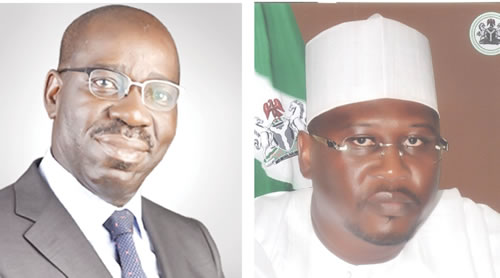 Edo State
Edo State
INEC Head of Voter Education and Publicity in Edo State, Timidi Wariowei, said over 400,000 old PVCs are available for collection at its offices in the 18 local government areas of the state.
Wariowei, who disclosed this to Sunday Tribune, said INEC is yet to receive the PVCs of residents who registered between January, 2022 to June, 2022.
He explained that 12, 351 out of the 483,796 PVCs registered before 2011, 2015, 2019 general elections and 21,638 of the 2021 registered 44,036 PVCs and transfers, leaving the balance of 22, 398 PVCs are available for collection.
Rivers State
INEC in the state says it cannot determine the number of unclaimed PVCs as people come to its offices to get their cards on a daily basis.
Speaking to Sunday Tribune, Geraldine Ekelemu, Public Relations Officer, said the number of PVCs collected in the state could not be determined because the exercise is continuing, especially with the cleaning up of the voter register.
The major challenge to the collection of the voters has been the distance of the local government offices of INEC across the 23 local government areas of the state, where some people have to travel long distances to get the cards.
Ondo State
In Ondo State, over 200,000 PVCs are yet to be collected in the state by their owners.
Attempts to speak with the REC, Rufus Akeju, were not unsuccessful, but an official of the commission who spoke to Sunday Tribune said some owners of these PVCs have been coming for their PVCs.
He said, “A total of 21,749 PVCs were received by the state for the 1st and 2nd phases of the CVR exercise and are currently being distributed at our various local government area offices.
“About 200,000 PVCs previously printed are still uncollected by their owners at the INEC offices across the state but some people have been coming to request their PVCs.
A resident, Mrs Aribisala said, “I have been visiting the INEC office in my local government times without number, but my PVC is not out. The trouble over the PVC is getting too much. But I will try and visit the local government INEC office again because I must vote this time around.”
Joseph Olusola also said, “I have been there but they asked me to come back and I went there more than three times until I got fed up. Something needs to be done about this as soon as possible in order not to discourage us from voting.”
Anambra State
In Anambra State, INEC said it has no accurate records of unclaimed PVCs in the State.
When Sunday Tribune visited the INEC headquarters between 8 and 9am on Thursdaynto ascertain the commission’s preparedness, a source said insecurity was a major factor affecting the process.
The HOD Voter Education and Publicity in the state, George Edeani, in a telephone interview, said he was not in position to disclose the figures.
Attempt to speak with the newly appointed Residence Electoral Commissioner, Mrs Queen Elizabeth Ugwu, prove abortive, as of the time of filing this report.
An Awka-based social advocate, Chris Azor, said there are numerous challenges faced by the electorate as regards collection of PVCs in the state.
“There is need to partner with stakeholders like media, civil society, traditional institutions, communities leaders, faith-based organisations, organised private sector/groups, political parties, state actors etc to achieve the aim.
“There is also need to devise a strategy to call registered voters through their phone numbers to come and collect ready PVCs. This strategy worked during COVID-19 vaccination activities,” he said.
Delta State
As of October, there were about 300, 000 PVCs not yet collected in the state. The figure consists of 244,000 cards unclaimed after the 2019 election, 69,000 received in 2021 after registration and 17,000 PVCs of those transferred to the state.
The head of the commission’s Voters Education and Publicity, Mr Bukola Ojeme, said the actual number of uncollected PVCs could not be ascertained until claims and objections are over.
The REC, Reverend Monday Tom Udoh, expressed displeasure at the low turnout of people coming for their PVCs or checking their names on the register.
Imo State
Officials of INEC in the state has declared that the whole process of issuance of PVCs cards to respective owners across is still ongoing.
The Head of Department Voter Education and Publicity, Mrs Emmenuela Ben Opara, told Sunday Tribune said that there is nothing like unclaimed PVC cards rather the process of issuing the cards to respective voters is still ongoing.
According to her, there still undisclosed number of cards printed in 2011 and 2015 including the cards printed between early 2021 till December 2021 that is still waiting for collection in their offices.
An INEC officer in the Owerri Municipal Council, who refused to provide his name, said already there are 53,000 old cards and 321,000 new cards lying in the INEC office in the council waiting to be collected.
He regretted the low and discouraging turnout of people to collect their cards, describing it as unfortunate.
A registered voter in Aboh Mbaise Local Government Area, Mr Obinna Ezeocha, told Sunday Tribune the reason he had not collected his PVC was because he visited the council headquarters several times only to be told that the card was not ready.
In his reaction, the leader of Development Dynamics, a Civil Society organisation in the state, Dr Jude Ohanele, said that INEC had before now made announcement on the cards that are ready.
Ekiti State
In Ekiti State, according to the figures released by INEC, 234,037 PVCs have remained uncollected in the state.
The REC, Professor Ayobami Salami, told Sunday Tribune that a total of 754,886 people had collected their PVCs, out of 988,923 total registered voters in the state, which he said represents 24 per cent of registration in the state.
He advised voters to visit the commission’s local government offices in their areas to collect the card to participate in the 2023 elections.
Sunday Tribune gathered that more people are yet to collect their cards due to many factors including the lack of decentralisation of the distribution process by the electoral umpire.
A voter in Ado-Ekiti, Tope Abimbola, who is an artisan explained that his work has been a stumbling block in getting his PVC from the INEC office in the state capital, calling on the commission to device more effective ways of reaching out to the electorate towards achieving full participation in 2023.
“Sincerely, I will like to vote next year, but I am yet to collect my PVC as of now due to the fact that I find it difficult to leave my shop and be queueing for hours to vote. I am using my national identity card for any official dealing that requires identification.
“I will like to advise and encourage government to find a way these cards can get to the voters in a more efficient way than what we have now. For instance, every registered voter has details relating to name, address, email and phone numbers. These can be used to trace the voters and give them.
Oyo State
INEC Public Relations Officer, Wola Awolowo, disclosed to that over 764,694 PVCs are awaiting collection at their various offices in the state.
According to Sunday Tribune findings, the cards are distributed to the various local government areas to reduce the problem of traveling from one end of the state to the other.
However, Comrade Michael Olusesi of Mowalek Centre for Sustainable Community Development, blamed the development on the rumour that election may not hold in 2023.
ALSO READ FROM NIGERIAN TRIBUNE
According to him, some of the registered voters have refused to collect their PVCs due to flimsy excuses that the proposed election may not hold due to various agitations from different groups.
“A number of persons do sit on the fence, claiming that their votes may not count, while some claim to be scared of political thugs who may disrupt the election process and inflict injuries on them.
Cross River
A total of 133, 402 PVCs are yet to be collected by prospective voters in the state.
According to information obtained from the commission’s state headquarters in Calabar by Sunday Tribune, from November 7 to date, the commission has a total of 94, 384 uncollected PVCs in the state out of those received in 2019.
Also, there is a record of 15, 920 uncollected PVCs from fresh registration of 2021/2022 of the PVCs received, while 23,134 unclaimed PVCs are from 2021/2022 transfers, making a sums total of 133, 402 uncollected PVCs in the state.
Some individuals who spoke with our reporter expressed mixed feelings over the PVC collection process.
“I am john Ojua. I registered, but I have not collected my PVC because of the challenge of delay. As it is now, everyone will be rushing to collect and the queues will be long.”
Others like Miss Joan Effiok, said “Yes, I have collected mine, but I have some friends who have not collected yet. They complain of distance to their local government or pulling units.”
Madam Janet from Calabar south said, “I am always busy. I wish they can send them to our ward. It will be easy for me because of my schedule “.
The REC, Professor Oyomere Gabriel, explained that the commission was working on modalities for distribution of voters to contiguous polling units to decongest the highly populated units and move voters to newly created polling units closer to them.
Akwa Ibom
An INEC official who did not want his name in print told Sunday Tribune that the collection rate in the state is high, though he was not specific in terms of real figures.
According to him, 100 per cent PVCs collection may not be attainable due to factors such as death, relocation, incapacitation and so on.
He expressed optimism that before the end of the collection exercise in the 329 wards of the 31 councils in the state over 90 per cent of those who registered would collect the cards.
To achieve the success, the officers said, they had ensured that officer said that officers of the commission were posted to all the wards in the state even as National Youth Corps members were drafted to assist the officers to succeed.
He disclosed that officers were trained specifically to handle disabled, physically challenged persons, pregnant, nursing mothers, the elderly and the illiterates during PVC registration, collection and voting.
Some persons who talked to Sunday Tribune complained of lack of transportation to the designated points of collection, asking that the exercise be taken to units for easy access by prospective voters.
While it is the duty of INEC to make the cards available to the owners to enable them to vote at elections, voters who intend to exercise their franchise have a duty to get their cards from INEC, no matter the challenges they face.
From Sunday Tribune investigation, INEC is gross under-staffed in most state offices, a reason election duties are outsourced to ad-hoc staff who are populated in the main by National Youth Service Corps members.
But INEC has a duty to make the collection of the cards easy by ensuring all arrangements are tidy and there is no mix up of cards. To demonstrate willingness in this direction, the commission could request extra funds, if it is not already captured in its budget for 2023 elections, to pay adhoc staff who will help in the distributing the cards at the polling units or registration areas where people registered. This exercise may last only days, probably four to five days, with massive multi-stakeholder enlightenment campaign.
In addition, it will be necessary for INEC to look into the complaints raised by prospective voters on the challenges being faced to get their cards.
The political actors and parties who are going to be beneficiaries of votes also have a role to play. They ought to deploy the same campaign machinery they have been using to canvass for votes to sensitise the people to get their cards. While they must enlighten the voters that they have an obligation to get their cards from INEC to enable them, participate in the elections, they could provide logistics support like vehicles to aid the voters.
The question has been raised about whether voters who details such as photographs, fingerprints, names, addresses and others actually need a physical card to vote.
A prominent economist and leader of the National Coalition Front, Professor Pat Utomi, threw the poser during a protest walk to INEC office in Abuja recently.
“It is the duty of INEC to do everything possible to decentralise and take down to the people, their PVCs, to make sure that everybody who was registered gets his or her PVC.
“We even know that the process is biometric. So, it should not even matter if they don’t have it (PVCs). Once their faces and fingerprints are recognised, they should be able to vote. It is not acceptable for Nigerians to be disenfranchised.
“We know that about 9.3 million voter cards are yet to be collected and are sitting idle in INEC offices. We want an explanation. If INEC needs help, we are ready to volunteer so that these cards can get to their rightful owners.
“There is urgent need for the dissemination of information regarding the PVCs”, he had said.
Additional reports from Ayodele Ajoge, Attahiru Ahmed, Kola Oyelere, Adamu Adamu, Mohammed Abba, Ishola Michael, Godwin Amaechi, Michael Ovat, Alphonsus Agborh, Johnkennedy Uzoma, Hakeem Gbadamosi, Yomi Ayeleso and Soji Ajibola
[ad_2]


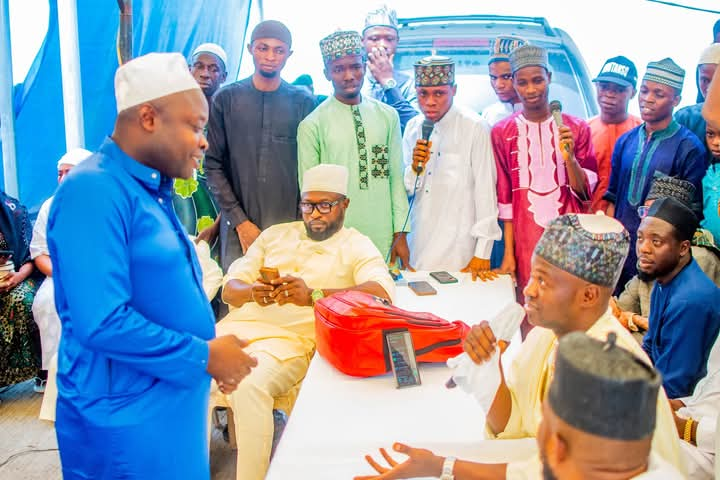



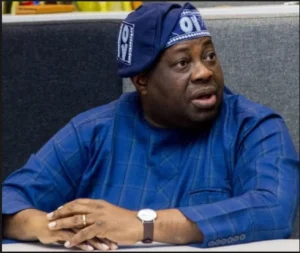
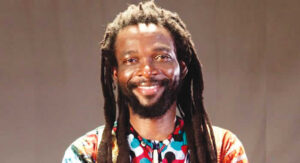
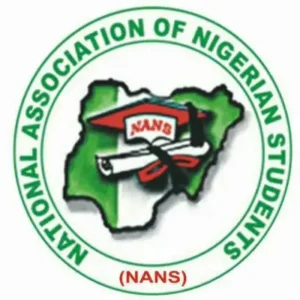

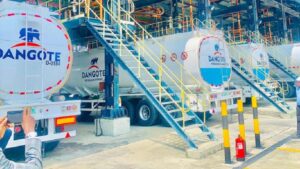


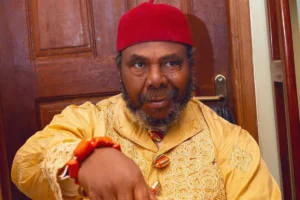
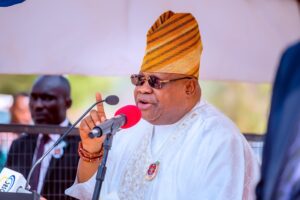
Post Comment